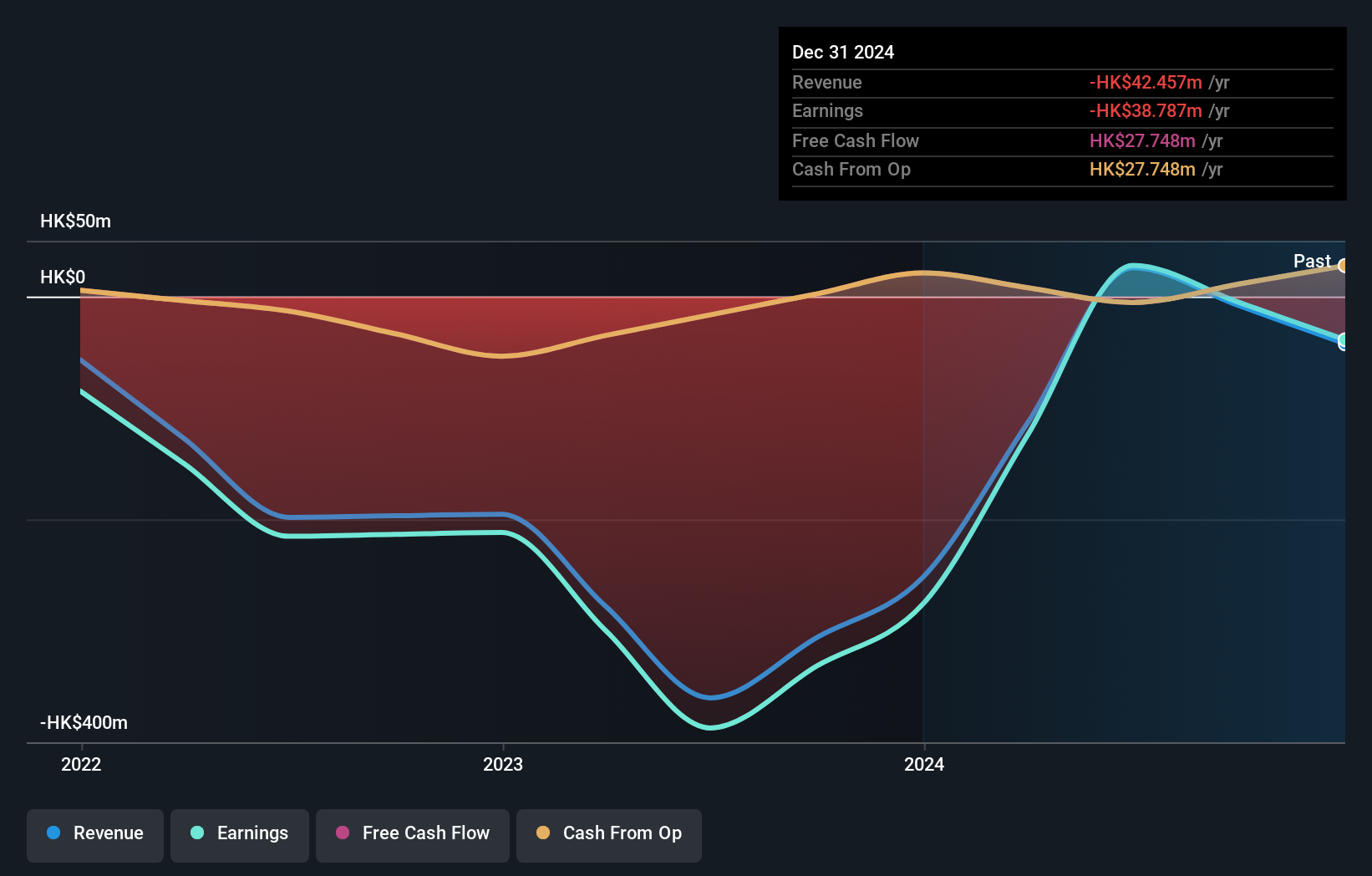China Financial International Investments Limited's (HKG:721) insiders are still the largest shareholders with 47% stake despite recent sales
Key Insights
- Insiders appear to have a vested interest in China Financial International Investments' growth, as seen by their sizeable ownership
- The top 5 shareholders own 50% of the company
- Insiders have been selling lately
To get a sense of who is truly in control of China Financial International Investments Limited (HKG:721), it is important to understand the ownership structure of the business. And the group that holds the biggest piece of the pie are individual insiders with 47% ownership. Put another way, the group faces the maximum upside potential (or downside risk).
Despite recent sales, insiders own the most shares in the company. As a result, they stand to gain the most after the stock gained 74% in the past week.
Let's take a closer look to see what the different types of shareholders can tell us about China Financial International Investments.
See our latest analysis for China Financial International Investments

What Does The Lack Of Institutional Ownership Tell Us About China Financial International Investments?
Small companies that are not very actively traded often lack institutional investors, but it's less common to see large companies without them.
There are multiple explanations for why institutions don't own a stock. The most common is that the company is too small relative to funds under management, so the institution does not bother to look closely at the company. On the other hand, it's always possible that professional investors are avoiding a company because they don't think it's the best place for their money. China Financial International Investments might not have the sort of past performance institutions are looking for, or perhaps they simply have not studied the business closely.

China Financial International Investments is not owned by hedge funds. Looking at our data, we can see that the largest shareholder is Jian Chen with 15% of shares outstanding. With 10% and 9.1% of the shares outstanding respectively, Xiaoqing Gan and Century Golden Resources Investment Group Co., Ltd are the second and third largest shareholders. Furthermore, CEO Lin Dong Du is the owner of 6.4% of the company's shares.
Our research also brought to light the fact that roughly 50% of the company is controlled by the top 5 shareholders suggesting that these owners wield significant influence on the business.
While studying institutional ownership for a company can add value to your research, it is also a good practice to research analyst recommendations to get a deeper understand of a stock's expected performance. We're not picking up on any analyst coverage of the stock at the moment, so the company is unlikely to be widely held.
Insider Ownership Of China Financial International Investments
The definition of an insider can differ slightly between different countries, but members of the board of directors always count. Company management run the business, but the CEO will answer to the board, even if he or she is a member of it.
I generally consider insider ownership to be a good thing. However, on some occasions it makes it more difficult for other shareholders to hold the board accountable for decisions.
Our most recent data indicates that insiders own a reasonable proportion of China Financial International Investments Limited. It has a market capitalization of just HK$878m, and insiders have HK$413m worth of shares in their own names. It is great to see insiders so invested in the business. It might be worth checking if those insiders have been buying recently.
General Public Ownership
The general public-- including retail investors -- own 44% stake in the company, and hence can't easily be ignored. While this group can't necessarily call the shots, it can certainly have a real influence on how the company is run.
Private Company Ownership
It seems that Private Companies own 9.1%, of the China Financial International Investments stock. It might be worth looking deeper into this. If related parties, such as insiders, have an interest in one of these private companies, that should be disclosed in the annual report. Private companies may also have a strategic interest in the company.

Next Steps:
I find it very interesting to look at who exactly owns a company. But to truly gain insight, we need to consider other information, too. Consider for instance, the ever-present spectre of investment risk. We've identified 2 warning signs with China Financial International Investments , and understanding them should be part of your investment process.
Of course this may not be the best stock to buy. Therefore, you may wish to see our free collection of interesting prospects boasting favorable financials.
NB: Figures in this article are calculated using data from the last twelve months, which refer to the 12-month period ending on the last date of the month the financial statement is dated. This may not be consistent with full year annual report figures.
Have feedback on this article? Concerned about the content? Get in touch with us directly. Alternatively, email editorial-team (at) simplywallst.com.
This article by Simply Wall St is general in nature. We provide commentary based on historical data and analyst forecasts only using an unbiased methodology and our articles are not intended to be financial advice. It does not constitute a recommendation to buy or sell any stock, and does not take account of your objectives, or your financial situation. We aim to bring you long-term focused analysis driven by fundamental data. Note that our analysis may not factor in the latest price-sensitive company announcements or qualitative material. Simply Wall St has no position in any stocks mentioned.
 Wall Street Journal
Wall Street Journal